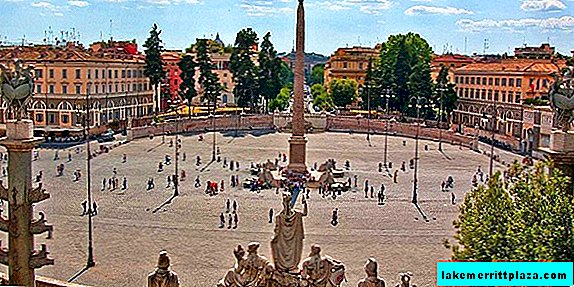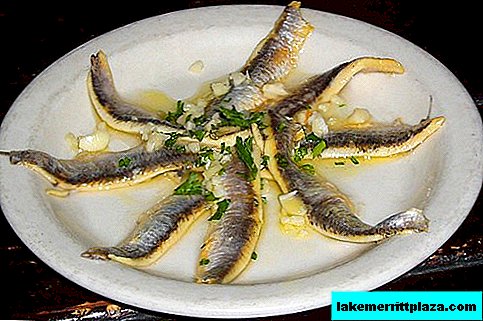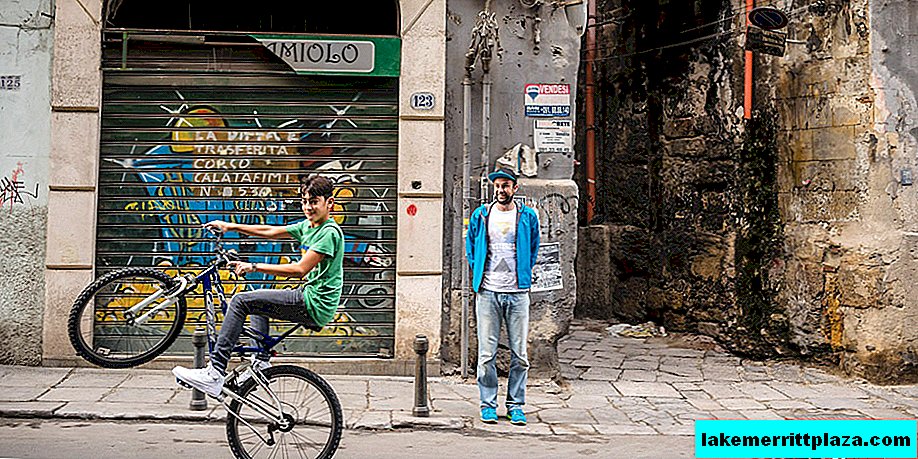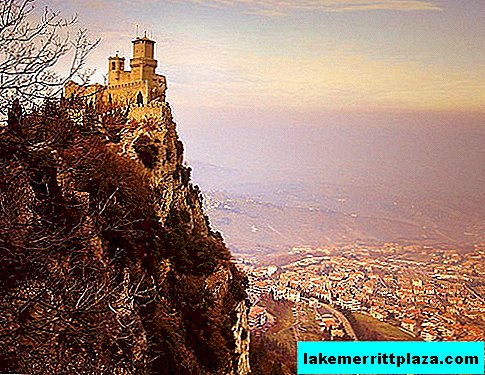The Venetians were determined to get rid of the so-called "castles of love" that are present on almost every bridge of the city on the water.
Residents of Venice are no longer able to endure the "disgusting" castles that numerous tourists in love leave in one of the most romantic cities in Italy to perpetuate their feelings and memories. Fragile bridges bend under the weight of metal symbols of love, and the Venetians become more and more annoyed. Their indignation resulted in a campaign called "Unlock Your Love", urging city guests to abandon the supposedly "romantic" gesture.

Residents of Venice have actively embarked on the implementation of the plan: warning leaflets for tourists have already been posted throughout the city, saying in different languages, including Russian: "Your love does not need chains. Venice does not need trash." The authors of the campaign hope that they will be able to convey to the guests of the city that they should refrain from attaching locks to old and fragile bridges. The information campaign has already affected not only the residents of the city, but also numerous local organizations that have supported it.
The authorities of Venice also did not stand aside, emphasizing that this is a great idea. “The so-called“ castles of love ”are a sign of disrespect for the historic sites of the city,” said the representative of the Venice authorities, Vittorio Zappalorto, adding that over time absolutely all castles should be removed.
Toso Fei (Toso Fei), who owns the idea of the project "Free your love," said that tourists just "need to be warned" that in an attempt to perpetuate their love in a romantic city, they only harm him. “Damage to bridges, which are almost the hallmark of Venice, is a serious problem,” said Fey.

Monica Cesarato, a teacher in one of the Venetian schools, even called the “castles of love” simply “disgusting”. “I love Venice, but they are extremely terrible, they have nothing to do with our culture. It’s disgusting to look at them. People should understand that it’s not worth it. A couple of years ago, tourists threw coins into the fountains, but because of the economic of the crisis, they apparently decided to spend their money this way. "
Many romantics will ask: "What memorable can we do in Venice now?" In fact, there are plenty of options: take a gondola ride, dine in a cozy restaurant with amazing views of the lagoon, visit a carnival and much more. Cesarato had the following idea about this: "The greatest gift that will warm their souls after visiting Venice is the realization that they respected this city and did not inflict the slightest damage on it."
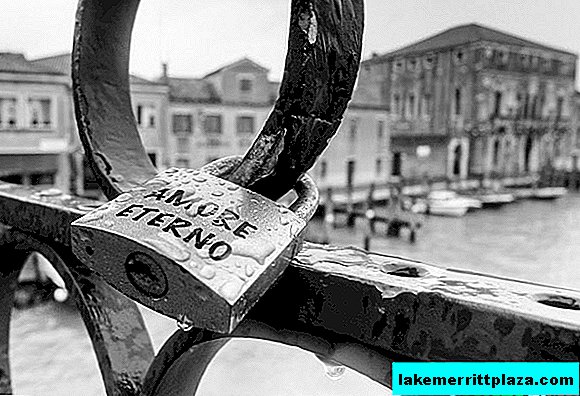
The tradition of leaving “locks of love” on the railing of city bridges, bars and lanterns appeared after the publication of the popular among young people book Federico Mocchia (Federico Moccia) “Three meters above the sky”, in which the main characters in this way admitted and swore to each other their feelings. Roman Mochchia sold a huge circulation, it was translated into several languages, and the idea to perpetuate his love by securing the lock, and to this day finds its fulfillment in different countries every day.

